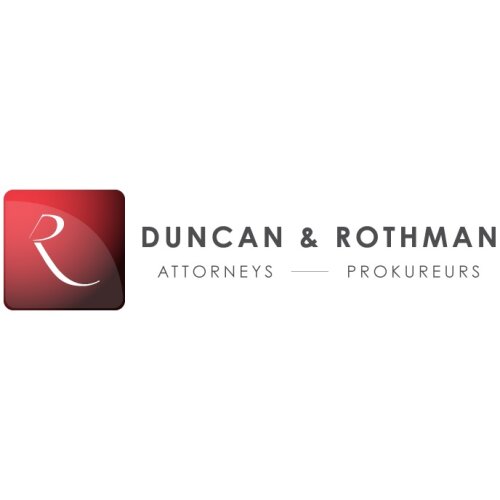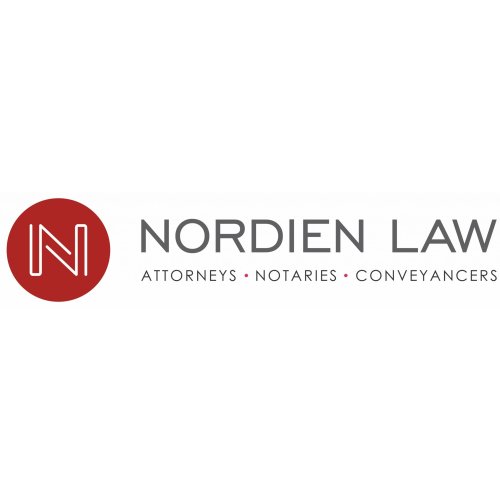Best Mining Law Lawyers in South Africa
Share your needs with us, get contacted by law firms.
Free. Takes 2 min.
Or refine your search by selecting a city:
List of the best lawyers in South Africa
About Mining Law in South Africa
Mining Law in South Africa refers to the set of legal frameworks and regulations governing the exploration, extraction, and management of mineral resources within the country. South Africa is well known for its wealth of mineral resources, such as gold, platinum, coal, and diamonds. The legal system ensures that mineral resources are managed responsibly, benefits are distributed fairly, and environmental and social impacts are minimized. South African Mining Law is primarily governed by the Mineral and Petroleum Resources Development Act (MPRDA) of 2002, among other relevant statutes and common law principles.
Why You May Need a Lawyer
Seeking help from a Mining Law specialist is vital in various situations. Navigating the complexities of South African Mining Law can be challenging due to the technical nature of legislation, regulatory requirements, and compliance obligations. People may need a mining lawyer for matters such as:
- Applying for or renewing mining rights, prospecting rights, or permits
- Negotiating mining contracts or joint ventures
- Complying with environmental, health, and safety obligations
- Resolving disputes over land access, surface rights, or community engagements
- Defending against regulatory enforcement actions or penalties
- Understanding Black Economic Empowerment (BEE) requirements affecting mining operations
- Structuring mergers, acquisitions, or disposals in the mining sector
- Undertaking due diligence on mining assets
An experienced Mining Law lawyer will be able to provide advice, help navigate complex processes, and represent your interests effectively.
Local Laws Overview
The core legislation governing Mining Law in South Africa is the Mineral and Petroleum Resources Development Act (MPRDA), which vests ownership of mineral resources in the state. Some key aspects of the local legal landscape include:
- State Custodianship: All mineral resources are held by the state for the benefit of all South Africans. Individuals and companies must apply for rights to explore or mine minerals.
- Mining and Prospecting Rights: Anyone wishing to prospect or mine must apply for and obtain proper rights or permits, which are subject to specific conditions, timelines, and community consultations.
- Black Economic Empowerment (BEE): Mining operations must comply with the Mining Charter, which sets out transformation and empowerment goals including ownership, management, and community development obligations.
- Environmental Management: Mining activities must comply with strict environmental regulations, including the National Environmental Management Act (NEMA). Environmental authorisations and management plans are required before any activities commence.
- Community Engagement: Consultations with landowners, lawful occupiers, and affected communities are mandatory before rights are granted or activities start.
- Health and Safety: The Mine Health and Safety Act provides for rigorous health and safety standards to protect workers and local communities.
- Dispute Resolution: Disputes relating to mining rights, land claims, and other issues are handled by specialized forums such as the Regional Manager, Director-General, or the High Court, and in some cases, through the Mineral and Petroleum Titles Registration Office.
Frequently Asked Questions
What is the process for applying for a mining right in South Africa?
Applicants must submit a detailed application to the Department of Mineral Resources and Energy. This includes providing environmental impact assessments, proof of community consultation, and social and labour plans. The process is strict and time-consuming.
Who owns the mineral rights in South Africa?
Under the MPRDA, all mineral resources are owned by the state, not by private individuals or companies. The state grants rights to exploit these resources under prescribed conditions.
What is Black Economic Empowerment (BEE) and how does it affect mining?
BEE is a government policy aimed at increasing participation of historically disadvantaged South Africans in the economy. The Mining Charter sets BEE targets for ownership, management, procurement, and community investment. Non-compliance can result in the suspension or cancellation of mining rights.
Can mining rights be transferred or sold?
Yes, but transfers of rights require government consent and must comply with the conditions set out in the MPRDA. Both the existing and prospective rights holders must meet regulatory criteria.
What are the main environmental obligations for mining companies?
Mining companies must obtain environmental authorisations and develop environmental management plans. They are required to rehabilitate land, prevent pollution, and report environmental incidents. Failure to comply can result in heavy penalties.
What happens if there is a dispute over land or mining rights?
Disputes may be resolved through administrative review, mediation, or litigation before the appropriate authority or court. Legal representation is often needed due to the complexity and significance of these disputes.
Do communities have a say in mining operations?
Yes, affected communities and landowners must be consulted before mining activities begin, and social and labour plans must address their interests. Ongoing engagement is required throughout the mining process.
How long does a mining right last?
Mining rights are typically granted for a period of up to 30 years, with the possibility of renewal. Prospecting rights usually last up to 5 years.
What regulatory bodies oversee mining in South Africa?
The Department of Mineral Resources and Energy (DMRE) is the primary regulator. Additional oversight comes from environmental agencies, local governments, and the Mine Health and Safety Inspectorate.
What happens if a mining company does not comply with the law?
Non-compliance with mining, safety, or environmental laws can result in administrative penalties, suspension or revocation of rights, criminal prosecution, or civil litigation.
Additional Resources
If you are seeking information or support on Mining Law in South Africa, the following resources may be valuable:
- Department of Mineral Resources and Energy (DMRE): The main government authority for mineral governance and compliance.
- South African Human Rights Commission: Offers guidance on community and environmental rights related to mining.
- Mine Health and Safety Inspectorate: Focuses on the safety and health of miners across all sectors.
- National Environmental Management Authorities: For advice and compliance queries relating to environmental regulations.
- Mining and Minerals Policy documents: Available through government websites and legal libraries.
- Legal Aid South Africa: Provides basic legal advice and assistance.
- Bar Associations and Law Societies: Lists of qualified mining law attorneys and firms specializing in the field.
Next Steps
If you require legal advice or assistance with mining law issues in South Africa, consider the following steps:
- Clearly identify your legal needs or problem, such as applying for a right, a regulatory issue, or a dispute.
- Gather all relevant documents, correspondence, and evidence relating to your issue.
- Consult resources and informational guides as a first step to understanding your rights and obligations.
- Contact a qualified Mining Law attorney or legal advisor who specializes in South African mining regulations.
- Prepare for your consultation by listing your questions, concerns, and objectives.
- Work closely with your lawyer throughout the process to ensure compliance and protection of your interests.
Navigating Mining Law can be complex, but with the right information and expert legal guidance, you can achieve a fair and compliant outcome.
Lawzana helps you find the best lawyers and law firms in South Africa through a curated and pre-screened list of qualified legal professionals. Our platform offers rankings and detailed profiles of attorneys and law firms, allowing you to compare based on practice areas, including Mining Law, experience, and client feedback.
Each profile includes a description of the firm's areas of practice, client reviews, team members and partners, year of establishment, spoken languages, office locations, contact information, social media presence, and any published articles or resources. Most firms on our platform speak English and are experienced in both local and international legal matters.
Get a quote from top-rated law firms in South Africa — quickly, securely, and without unnecessary hassle.
Disclaimer:
The information provided on this page is for general informational purposes only and does not constitute legal advice. While we strive to ensure the accuracy and relevance of the content, legal information may change over time, and interpretations of the law can vary. You should always consult with a qualified legal professional for advice specific to your situation.
We disclaim all liability for actions taken or not taken based on the content of this page. If you believe any information is incorrect or outdated, please contact us, and we will review and update it where appropriate.
Browse mining law law firms by city in South Africa
Refine your search by selecting a city.















